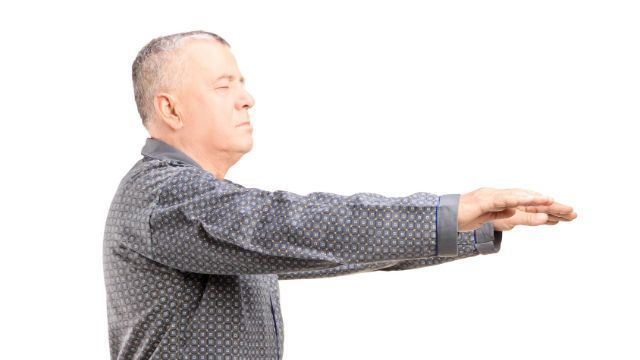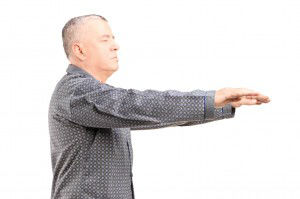
Sleepwalking, when an individual rises and walks around the house, sometimes doing routine chores, or engaging in bizarre behaviors, while still in non-REM sleep, can be highly disruptive for family members of the sleepwalker, and potentially dangerous for the individuals themselves. In some cases, sleepwalkers are completely unaware that they engage in this behavior.
According to the American Sleep Association (ASA), sleepwalking reaches its highest rate of prevalence during childhood – up to 17 percent of children in the US are estimated to sleepwalk at least once. The age where it is most commonly observed is between 10 and 12, and it usually dissipates before adulthood.
Up until 2012, only about one percent of adults were estimated to sleepwalk. However, a 2012 study performed by Stanford University School of Medicine surveyed nearly 20,000 Americans over the age of 18, and based on their results, upped the percentage to about 3.6 percent of adults. This translates to about 8.4 million adult sleepwalkers in the US.
Study author Maurice Ohayon, a professor of psychiatry and behavioral sciences at Stanford, states, “I would like to correct the impression that sleepwalking is rare. This is a huge number of people.”
There are multiple factors that may play a role in the development of sleepwalking. One is genetics – those with family members who sleepwalk have a 2 or 3 times higher risk of sleepwalking themselves. Some medical conditions, including obstructive sleep apnea, respiratory conditions, chronic stress, hypertension and head injuries may trigger sleepwalking episodes.
In some cases, depression, obsessive-compulsive disorder, fevers, alcohol and certain medications (including sleeping pills) may increase the likelihood of sleepwalking.
If you are unsure whether you sleepwalk, and either live alone or have had no reports of it by family members, check your home in the morning for items being moved or rearranged, or doors and windows positioned differently from how they were the night before. Also check for missing or moved food – some sleepwalkers eat in their sleep. To confirm a suspicion, install a video camera in your bedroom.
If you are a sleepwalker, there are several steps you can take to help prevent an episode:
- Avoid becoming overtired – sleepwalking is much more common during times of sleep deprivation. Go to bed early, and avoid pulling all-nighters for work or studies.
- Meditation before bed, to fully relax your body and mind, may do wonders for some people.
- Do not do computer work, watch TV or interact with any electronic devices (if possible) for an hour before bed.
- Avoid alcohol, especially when you are overtired.
- Certain herbal teas (such as chamomile) and essential oils (such as frankincense) may help some people ease into REM sleep without having a sleepwalking session. However, it is best to speak to a natural health professional about what may work for you and your individual needs.
 If you do sleepwalk on a regular or semi-regular basis, there are certain steps you can take to protect yourself and your family from harm:
If you do sleepwalk on a regular or semi-regular basis, there are certain steps you can take to protect yourself and your family from harm:
- Sleep on the ground floor of your home if possible, to avoid stairway tumbles.
- Keep windows locked, even on the ground floor.
- As locking doors may be a fire hazard, you may opt to install an alarm or bell on your bedroom door, to wake you up should the door be opened.
- Keep sharp objects, or anything else that could be unsafe, in locked cabinets, out of your bedroom. In rare cases, sleepwalkers have gotten into their cars and driven, so make sure to keep car keys out of reach.
- If you sleep with a partner, sleep in the inside of the bed if possible, so it is more difficult to get up and walk around.
- If you have a tendency to sleep-eat, keep the refrigerator and pantries locked, and make sure there is no food out on the counter.
Some people only sleepwalk once or twice throughout their lives, either as a result of sleeping pills, sleep deprivation or a bout of extreme stress. However, if you do it on a regular basis, visiting a sleep specialist may help to rule out any underlying causes, and help you find a solution to rest easy through the night.
-The Alternative Daily
Sources:
http://med.stanford.edu/ism/2012/may/sleepwalk.html
http://usatoday30.usatoday.com/news/health/story/2012-05-10/sleepwalking-depression-Neurology/54959430/1
http://www.dana.org/Cerebrum/2006/Are_We_in_the_Dark_About_Sleepwalking%E2%80%99s_Dangers
http://www.webmd.com/sleep-disorders/how-is-sleepwalking-treated
http://www.sleepassociation.org/index.php?p=sleepwalking

